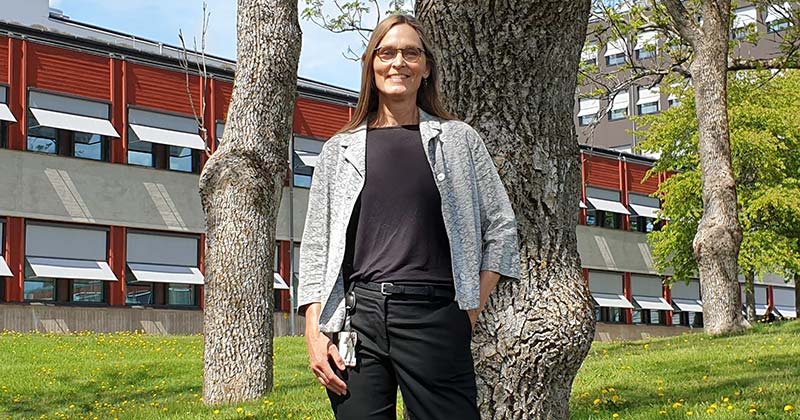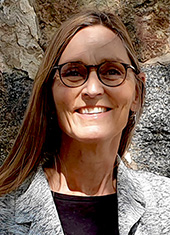Contact
Renée Båge, Professor
Department of Clinical Sciences; Division of Reproduction, SLU
renee.bage@slu.se, +46 18-67 25 07
“My interest in collaboration, and my absolute conviction of its usefulness, was probably one of the reasons I was asked to take on the role of vice dean. So much of our research wouldn’t be possible without collaboration. It’s the solution to many of our challenges,” says Renée Båge, the new vice dean responsible for collaboration.

Renée works every day at the Department of Clinical Sciences. She has just taken up her new position as professor of animal reproduction, and exactly how she will divide her time remains to be seen.
Of course, collaboration is discussed in various constellations at SLU. The main forum is the Council for External Collaboration, chaired by Pro Vice-Chancellor Anna Lundhagen and with representatives from all four faculties.
 “We discuss how to carry out collaboration, how the different faculties do this and what we can learn from each other, focusing on one SLU. Collaboration can be perceived as something abstract. We need a structure, we need a strategy and we need funding. And how do you evaluate and assess collaboration? Those who spend a lot of their time on collaboration tasks must know if this has any merit.”
“We discuss how to carry out collaboration, how the different faculties do this and what we can learn from each other, focusing on one SLU. Collaboration can be perceived as something abstract. We need a structure, we need a strategy and we need funding. And how do you evaluate and assess collaboration? Those who spend a lot of their time on collaboration tasks must know if this has any merit.”
SLU has four ‘Future platforms’. The purpose of these is to increase cooperation between SLU researchers, as well as collaboration in the intersection between academia and society. The platforms dealing with our issues are called Future One Health and focus on animal and human health and welfare in sustainable ecosystems, and Future Food that has its focuses on ecologically and socially sustainable food systems.
Until recently, Renée worked part-time as a fertility expert at Växa Sverige. She has also co-taught courses for animal owners arranged by Gård&Djurhälsan.
“Växa and Gård&Djurhälsan are both excellent examples of organisations that want to increase the knowledge among farmers and ensure that the advice given is scientifically sound. For them, collaborating with SLU has considerable advantages. This is important to us in several ways. Research can be put to use as quickly as possible among farmers, and in our contacts with them, we become aware of many potential research issues.”
The Swedish Board of Agriculture has launched a project setting up national knowledge hubs with the aim to increase the competitiveness of Swedish agriculture as well as domestic food production.
“They want to bring together different actors such as extension services, public authorities and universities, and businesses in the sector, to create a structure for collaboration.” SLU is, of course, part of this to highlight the importance of research, but also because of our trial infrastructure.”
Renée believes it would be a considerable advantage if these hubs were physically located on campus, putting teachers and students in touch with businesses and adapting teaching to the future needs of the agricultural sector.
Some collaboration takes place at the local level. In Umeå and Skara, SLU has a long-standing collaboration with local businesses and the land-based sector. In Uppsala, SLU and Uppsala University collaborate on the U-Share project. Renée is chair of the U-Share steering committee but emphasises that successful collaboration with Uppsala University takes many shapes such as several active collaborative centres and research teams.
“There, it’s not so much about animal species but more about research on humans and animals, in subjects such as medicine, microbiology, pharmacy and infrastructure. Discussions within U-Share on how to organise future collaboration are very much alive.”
Text and photo: Mårten Granert-Gärdfeldt.
Renée Båge, Professor
Department of Clinical Sciences; Division of Reproduction, SLU
renee.bage@slu.se, +46 18-67 25 07